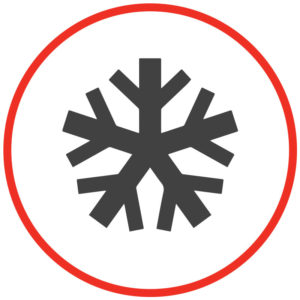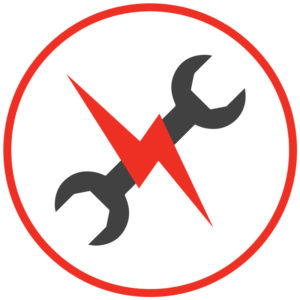Why Your Garage Door Spring Breaks
As the heavy lifters of your garage door system, tension springs are powerful, essential, and dangerous. However, they are not invincible. Let’s explore why your garage door springs break, what indicators to look for, and what actions to take.
Lifecyle
Nothing lasts forever. Of all the reasons for a broken garage door spring, general wear and tear is the most common. Over time, the continual opening and closing weakens the springs, and eventually, this weakness reaches its breaking point. This breaking point not only renders your springs ineffective, it can also be extremely dangerous. Keep in mind, the average lifecycle of a garage door spring is 10,000 cycles. If taking into account average daily use (4 cycles), this equates to a 7 year lifecycle. After these 10,000 cycles, replacement is needed.
Rust & Cold Weather
Mother nature likes to win. As rust builds on your garage door springs, friction increases, material weakens, and breaks become inevitable. To add salt to the wound, cold weather does the same.
Improper Maintenance
Although wear and tear, rust, and weakening are inevitable, improper maintenance only snowballs these negative effects. And what is the typical reason for improper maintenance? Laziness. With some simple, bi-monthly maintenance, you can significantly increase the longevity of your springs and significantly decrease the chances of severe injury:- Lubricate springs with petroleum jelly (WD-40 is not a true lubricant)
- Apply WD-40 to springs (rust prevention)
- Check balance of garage door (improper balance can add unwanted tension on springs)
- Manually open door halfway and let go
- If door sags to one side, a realignment is needed

What To Look For
With the extreme danger surrounding garage door springs, It is crucial to make yourself aware of any issues and to have them repaired immediately. During your bi-monthly lubrication and balance checks, check for rust, cracks, and obvious breaks. On a daily basis, listen for squeaking and a loud thud when the garage door closes. For rust, cracks, breaks, and loud thuds, call a technician as soon as possible. For squeaking, apply lubrication. If door continues to squeak, it is time for a replacement.
Now that you know why your garage door springs break and the danger that comes with it, make sure to conduct continual maintenance and make sure to call us in the event of a break.